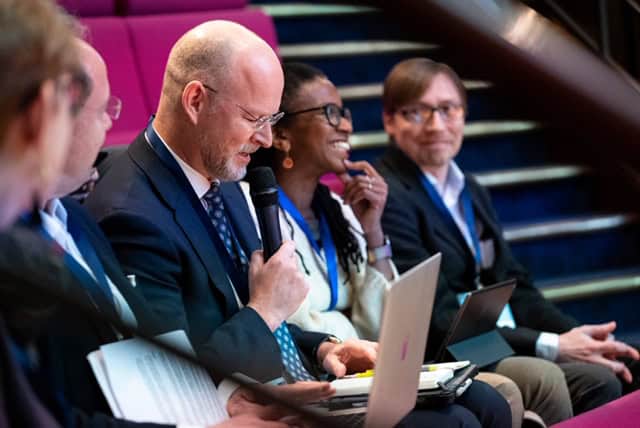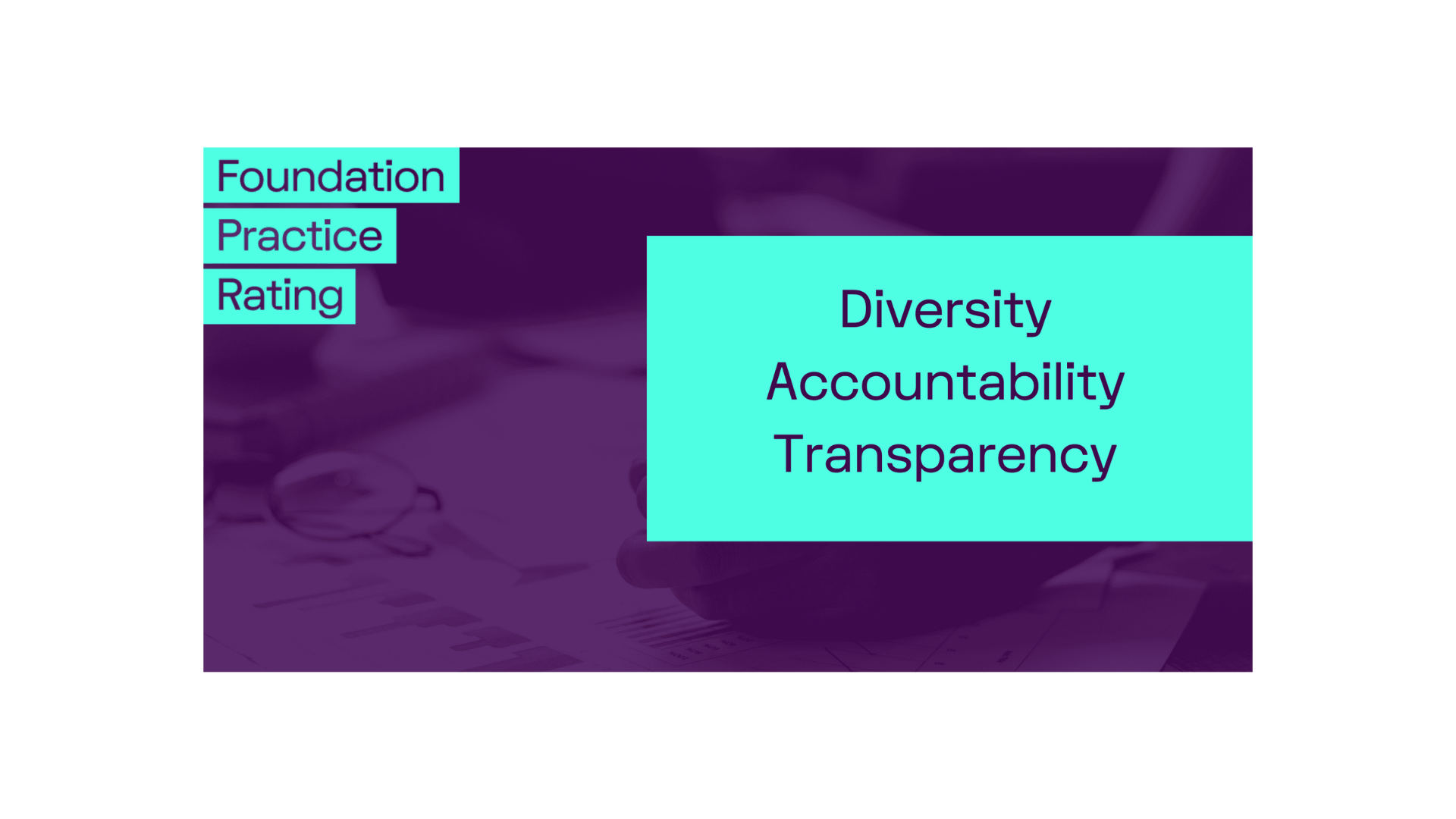


Do You Have a Banking Blind Spot?
Date: 07/04/2025

Many companies and charities today put a great deal of time and effort into making their businesses as sustainable and ethical as they can be, and they are to be applauded for it.
Some of us are signatories to the B Corp movement or insist on fair trade. Others have declared themselves to have achieved net zero or are striving to become so by a set date. Many source purely renewable energy to support their operations, encouraging their employees to cycle or walk to work, and offering vegetarian and vegan options in their canteens. They prioritise suppliers that are small local businesses, have paperless offices, and strict recycling policies. They operate progressive HR policies including generous parental leave to all, regardless of gender or sexual orientation, or whether they are the “birth parent.” They pay the Real Living Wage link, recruit from underprivileged groups, and reach out to those who have been marginalised. Some have internal committees with a cross-section of employees reviewing their company supplier base to ensure their supply-chain reflects their own values and policies. As consumers become more demanding of the ethical standards of business, it’s even suggested that there’s a bit of an “arms race” among leading organisations to be seen to be more virtuous than their peers – to be “greener” than the rest.
But there appears to be one enormous blind spot.
How many have considered one of their most important supplier relationships – that with their banker?
If you asked 100 CEOs to name their top twenty supplier/service provider relationships, every single one would mention their main bank. They can’t function without them. No payroll, no payments to suppliers, no overdraft, no loans etc., and that’s just the basics before discussing factoring, company credit cards, or even raising corporate financing. It is one of the very few core supplier relationships common to all businesses.
But how many “ethical”/sustainable organisations give much thought to changing their bank to the most ethical/sustainable alternative?
The “Big Four” (Barclays, HSBC, Lloyds and RBS) have 85% of business accounts and 90% of business loans in England & Wales (https://www.treasurers.org/hub/treasurer-magazine/big-four-banks-still-dominate-sme-business-account-market). It seems likely that banking is pretty much exempt from a company’s “ethical review of its supplier base.” Banking in Scotland and Northern Ireland is even more concentrated than in England & Wales.
The fact that your bank may have been repeatedly exposed and sanctioned for nefarious activities (some recent examples: insider trading, money laundering, discrimination, harassment of whistle-blowers, bribery, over-charging, mis-selling, unjustified excessive remuneration etc.), as well as providing the finance for pretty much all of the suppliers that your business is choosing to disassociate its brand from, seems to be lost on most.
It’s quite bizarre that organisations that are actively campaigning against banks for their poor ethical and environmental records, still very often rely on those same organisations for their own banking services.
Why do organisations put so much energy into being “the best that they can be,” while completely ignoring their banking relationships when reviewing suppliers?
One less obvious reason is that the “cost” of banking is hidden. When reviewing suppliers, most businesses, understandably, look at where they spend their money e.g. raw materials, packaging suppliers, rent, electricity and power, travel, catering, stationery, office supplies, uniforms, cars, vans, trucks etc. They spend much time and energy in, for example, redrafting travel policies to ensure employees avoid flying and use low carbon options – even granting extra time-off so that employees can travel by rail as opposed to air. Their vehicles are electric, they incentivise cycle-to-work schemes, but the “cost” of banking doesn’t even register on most Profit & Loss accounts.
The other main reasons are more obvious, including: the “cost of switching” (definitely a real cost for some, but often not much of a cost for many), perception that their stakeholders need to be associated with a “big brand”, concerns (quite possibly misplaced) about operational resilience, an erroneous belief that there are no ethical options available that can meet their needs, and likely the biggest blocker to most change = inertia. Just because, for some, it is tough to switch, does not mean it is not worth the prize of switching. At Friends Provident Foundation link (of which I am proud to be a trustee), we bank with CAF Bank link and Triodos Bank link (we recognise that CAF Bank with HSBC/ RBS and Triodos with NatWest and that most banks have very few options for clearing). We note that there have been some developments in the clearing space with new entrants (e.g. Clear Bank) and we are hopeful that, over time, there will be more choice.
Over our twenty-year history, we’ve spent more than £60m in support of charitable work and managed much more in terms of our own capital and have had no material issues. However, we too have been digging deeper and finding that smaller banks like our own often rest upon the banking platforms of the larger banks – it is hard to entirely break free to find service providers entirely aligned with our values.
Most businesses and charities in the UK are relatively small and have comparatively simple requirements for the vast majority of their banking. It’s unlikely, for example, that they’ll need to pay staff in over a hundred countries including the Democratic Republic of Congo (DRC). Undoubtedly, the vast majority of businesses could have most of their needs met by one of the ethical banking options available in the UK. Given that most banking is now done online, and the famous “branch network” is fast disappearing, there is little reason, for most, to stay with the Big Four.
There is also an interesting “cultural” opportunity for finance professionals in this area. Banking relationships are often within the purview of the finance department. Culturally the finance department can, sometimes, be excluded from the sustainability discussions within a business – even though they may have both passion for and knowledge on the subject. Perhaps this is an opportunity for the finance community to champion change within their organisation.
We wonder if the big four’s business and charity customer base chose to include banking when deciding if all of their suppliers were “ethical and sustainable”, and started “asking the question,” then the big four might work a little harder on these issues. e.g., Walmart, often a target for NGOs pointing out “bad behaviour,” did something that may well have had a considerable positive effect on the environment. Back in mid-2009, Walmart announced to its suppliers that it was a requirement for them to provide information about the environmental impact of their products (I remember this well, as I heard it on the car radio, and almost crashed). Please note, Walmart did not ask for “good” or “bad” behaviour – just that suppliers disclose information. Asking questions can have a positive impact.
One thing we’ve done in the past, something which other grant givers might want to consider, is asked the question of organisations seeking funding. We have asked people who they bank with and why. On one occasion, the grantee was embarrassed to admit they banked with one of the Big Four while actively lobbying against that same organisation for its poor ESG record. Maybe, by just asking the question, we can bring about change.
This subject continues to be a challenge for us at Friends Provident Foundation, as it is for others in the sector, it’s on our agenda and we’re thinking about it.
By the way, if you did need to pay staff in e.g., the DRC, then Reliance Bank link (the bank of the Salvation Army) pays staff in 133 countries, so they’re likely more skilled in this area than pretty much anyone.
By Paul Blyth, Trustee Friends Provident Foundation

